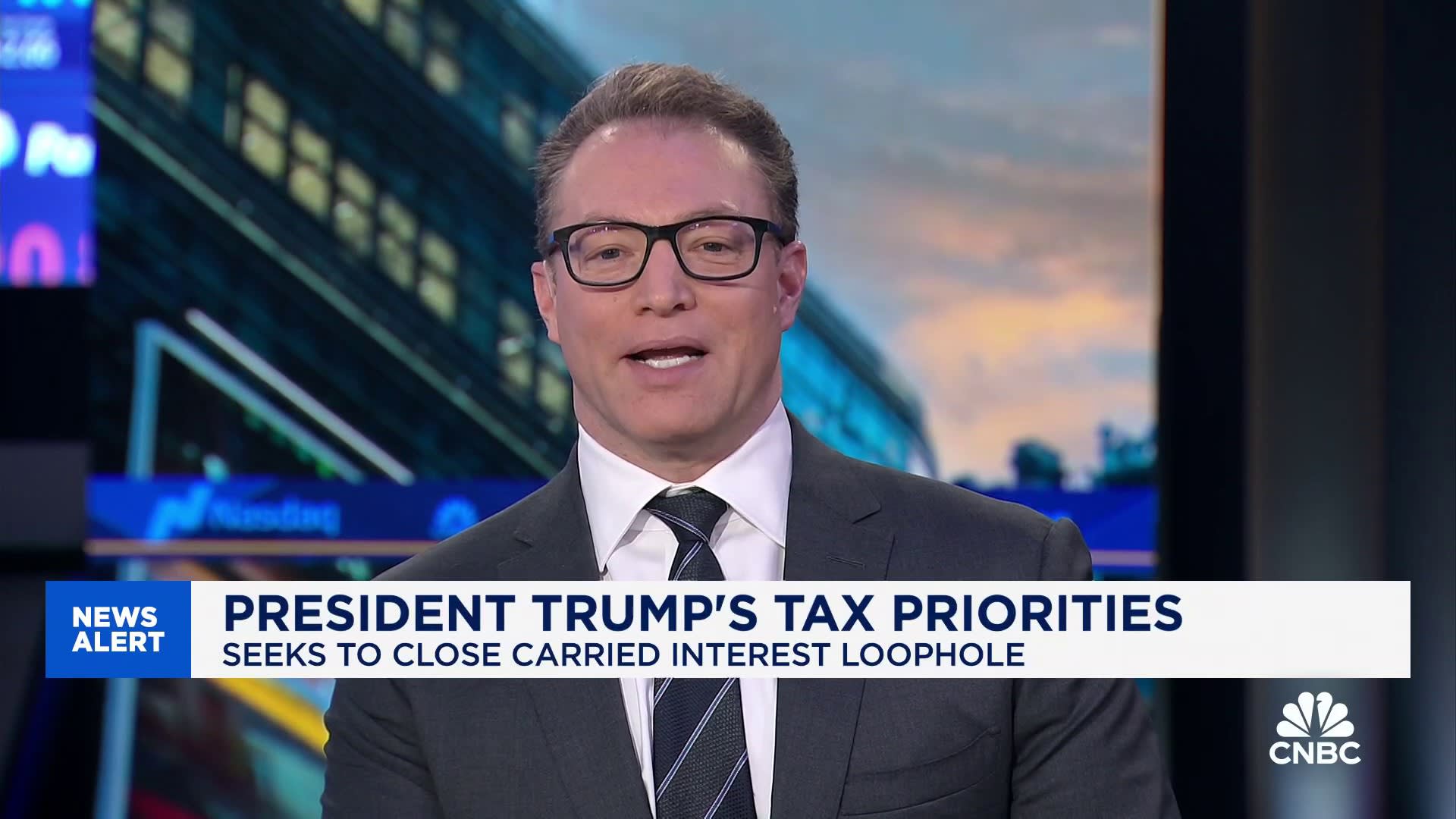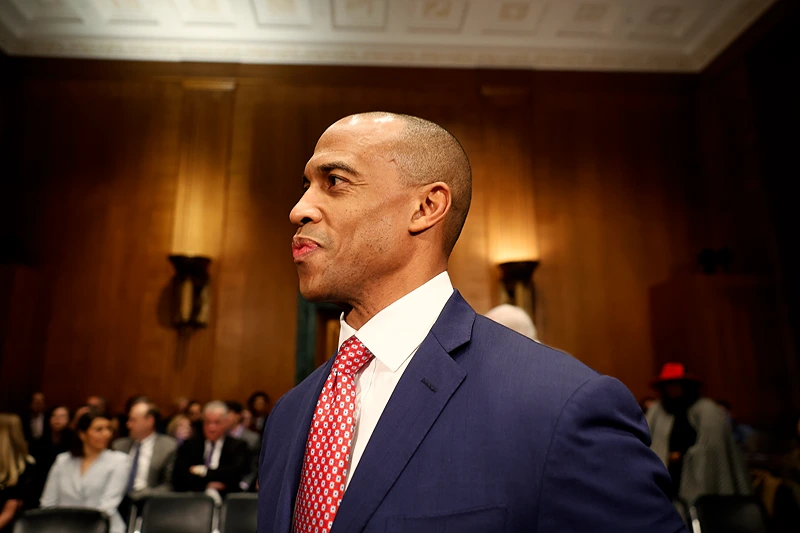President Donald Trump takes questions during a press conference with unseen Israel’s Prime Minister Benjamin Netanyahu in the East Room of the White House in Washington, DC, on February 4, 2025.
Andrew Caballero-Reynolds | Afp | Getty Images
Investment managers also receive management fees, subject to regular income taxes. But most earnings come from carried interest, according to tax expert Steve Rosenthal.
Bipartisan support for carried interest reform
Critics of carried interest argue these earnings should be treated like wages, taxed at regular income tax rates, rather than receiving preferential capital gains treatment.
“It’s come up again and again on a bipartisan basis,” said Garrett Watson, director of policy analysis at the Tax Foundation. But there’s been consistent pushback from industry lobbyists.
“We encourage the Trump administration and Congress to keep this sound tax policy … that supports jobs, workers, small businesses, and local communities,” the American Investment Council, a trade group that represents private equity, said in a statement.
More from Personal Finance:
What to know about student loans as Trump seeks to close Education Department
How the U.S. has used tariffs throughout history — and why Trump is different
‘Where’s my refund?’ How to check the status of your federal tax refund
While Trump vowed to end the tax break during his first term, the Tax Cuts and Jobs Acts of 2017 enacted a smaller change — extending the required holding period for long-term capital gains treatment to three years from more than one year.
A provision to extend the holding period to five years was considered for the Inflation Reduction Act in 2022. But in an evenly divided Senate, the change was cut amid industry pushback.
“The carried interest loophole is a fascinating challenge,” Rosenthal said. “Everyone wants to close it, except private equity executives.”
Projected revenue is a ‘drop in the bucket’
The carried interest proposal comes as Republicans debate spending priorities and seek additional ways to pay for Trump’s tax cuts.
However, revenue from eliminating the carried interest tax break is a “drop in the bucket” compared with the trillions needed to extend expiring tax breaks and pass additional priorities, Watson said.
Taxing carried interest as regular income could decrease the federal budget deficit by $13 billion over 10 years, according to a December estimate from the Congressional Budget Office.


